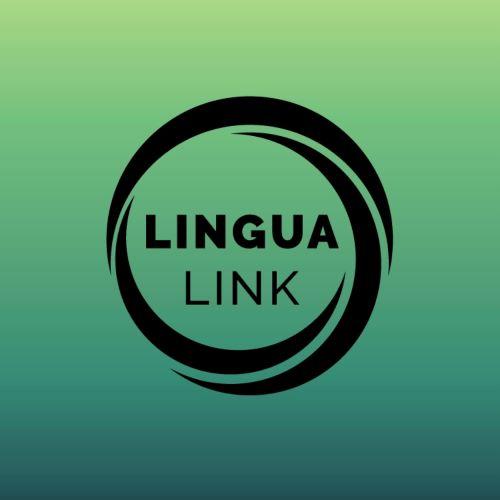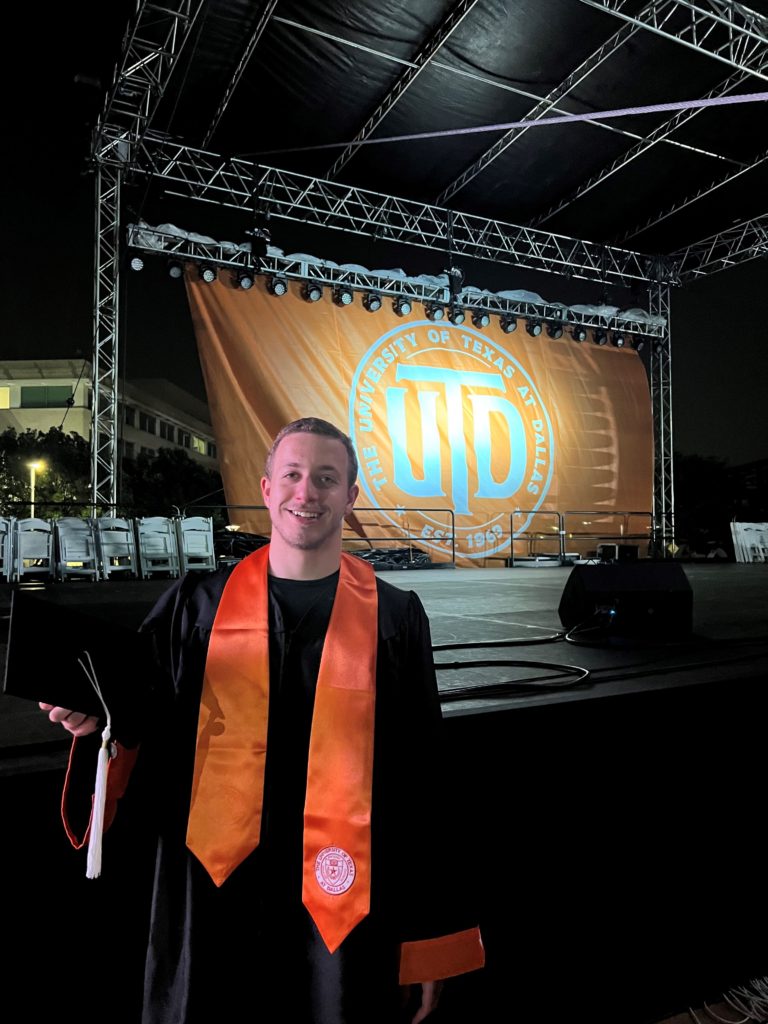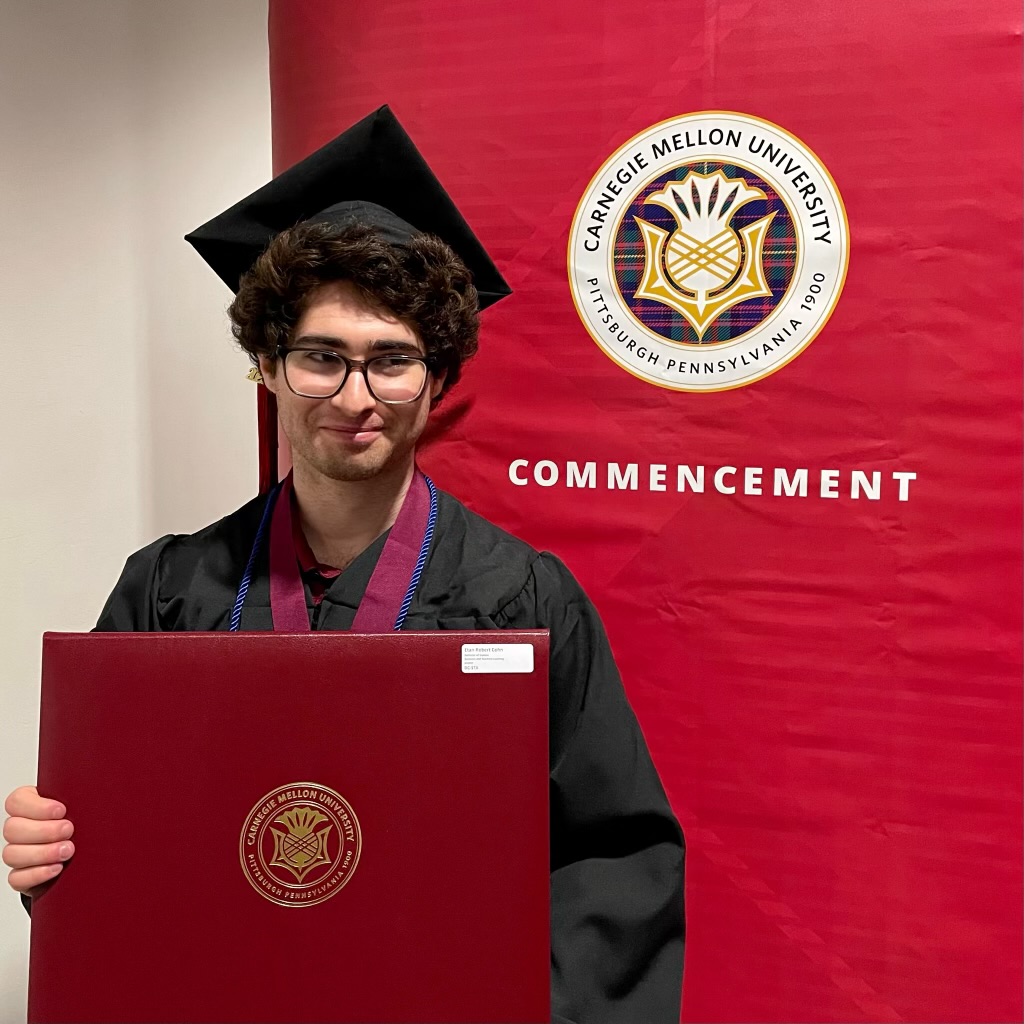As language learning tools flood the digital landscape, Lingua Link emerges to fill in the gaps left by Duolingo and similar apps, using the powers of AI to augment your studying.
Lingua Link, cofounded by UTD alumnus and account manager Seth Dolginoff and software engineer Etan Cohn, is available for download in the Apple Store. Since its launch in September 2023, the app has gained users from over 50 countries, offering six languages: Chinese, French, German, Hebrew, Italian and Spanish. Lingua Link is an AI-powered app that builds an individual’s memory of vocabulary through mnemonics and mini-games. It is meant to supplement other language-learning apps like Duolingo and Babel. Lingua Link has 16 positive reviews, with more than a dozen five-star reviews on the Apple Store and a portion of all profits going to charity.
“Our goal is that people will mention us alongside other language apps, like Duolingo and Lingua Link,” Dolginoff said. “If someone wants to use Duolingo or one of these other apps, we’re not competing with these apps trying to take away users, we’re trying to get somebody that’s learning the language to be like, OK, now I can remember the vocabulary better.”
During his undergraduate years, Cohn took psychology courses at Carnegie Mellon where he learned about memory techniques, including the elaborative encoding method. This involves connecting new information to existing knowledge. Implementing this strategy when studying Spanish, Cohn found that it significantly streamlined his vocabulary retention and made word recall easier.
“I realized I had been learning languages wrong, this whole time I was just doing the worst strategies,” Cohn said. “I was trying out this strategy [elaborative encoding] and I found that it works really, really well. I could remember these words.”
Cohn said devising mnemonic devices for every word was demanding. Cohn began using AI to automatically generate mnemonics, eventually developing an app for the concept. Both from Plano, Dolginoff and Cohn’s friendship began at birth thanks to their parents’ friendship; they quickly formed a bond over the app idea. Cohn focused on app development, while Dolginoff concentrated on marketing and managing the business.
“That’s how we met, just from our parents already being friends, and so we’ve been friends ever since,” Dolginoff said. “I’ve known that guy since we were both babies … [it was] just fate.”
The app allows users to generate or select vocabulary words, along with two games where users can quiz their knowledge of animal and food vocabulary. Powered by ChatGPT, Dolginoff said there is no limit on the number of times a vocabulary word can be generated. The app is free to use, with the only restriction being the number of images generated, capped at 15 per user.
“Doing something that actually matters in this world is really important to me,” Dolginoff said. “We both always cared a lot about helping other people in whatever way possible. I’ve always wanted to make some kind of a difference in this world or some kind of a change … this is something where we’re able to make language learning accessible to more people.”
Lingua Link allocates at least 10% of its net income, which comes from ads, to the Make-A-Wish Foundation and other 501(c)(3) nonprofit organizations focused on individuals with critical illnesses. Dolginoff first became interested in philanthropy after losing a friend to brain cancer during his childhood; he now hopes to pay back the support that Make-A-Wish showed to his friend. Dolginoff’s grand uncle, Alan Levin, said Dolginoff has a keen eye for opportunities and grew up with a strong foundation of integrity.
“He’s pleasant, he’s honorable and he’s very dedicated to task,” Levin said. “He sees opportunities where some may not, so I’ve been impressed with his entrepreneurial bent and I suspect that one of these days, he’s gonna be one of the ones who hit the big number and makes a lot of money and makes the world a better place.”
The development of the app helped Cohn secure his current job as a software engineer, as it was a fixture on his resume. Zachary Leventhal, a former classmate of Cohn and current research fellow at MIT, said Cohn demonstrated both perseverance and resourcefulness in creating Lingua Link.
“Etan is incredibly self-motivated and determined, always striving to turn his interests into productive endeavors, whether it’s developing apps like Lingua Link or pursuing his passions in musical theater and soccer,” Leventhal said.
The app’s future goals include removing the limitation on image generation, offering a premium version, allowing users to learn more languages such as Japanese and Arabic and adding features like phrases, grammar and pronunciation guides. Cohn also said Lingua Link aims to implement machine learning to personalize the learning experience and enhance vocabulary acquisition through spaced repetition techniques.
“We’re honestly trying to make a useful product and one that people enjoy using,” Dolginoff said. “We believe that language is a bridge, not a barrier. If more people are learning languages, maybe there will be fewer wars. It just makes the world a better place, makes people more connected.”







